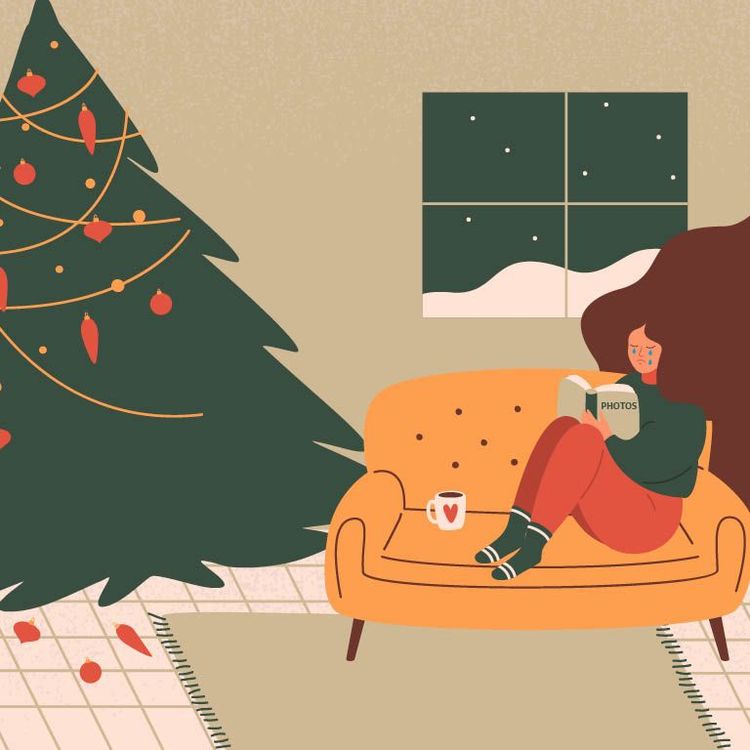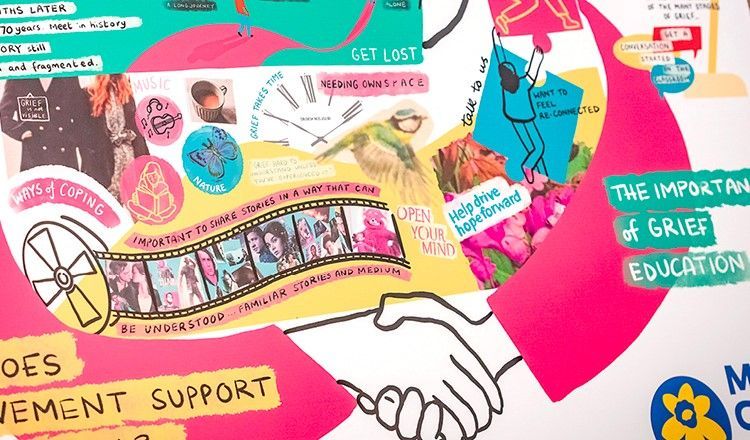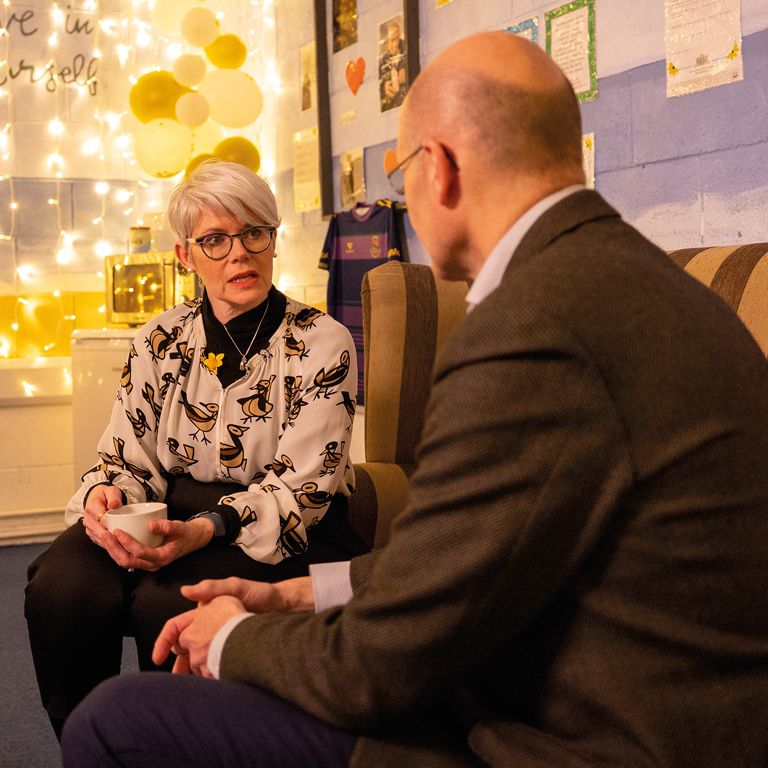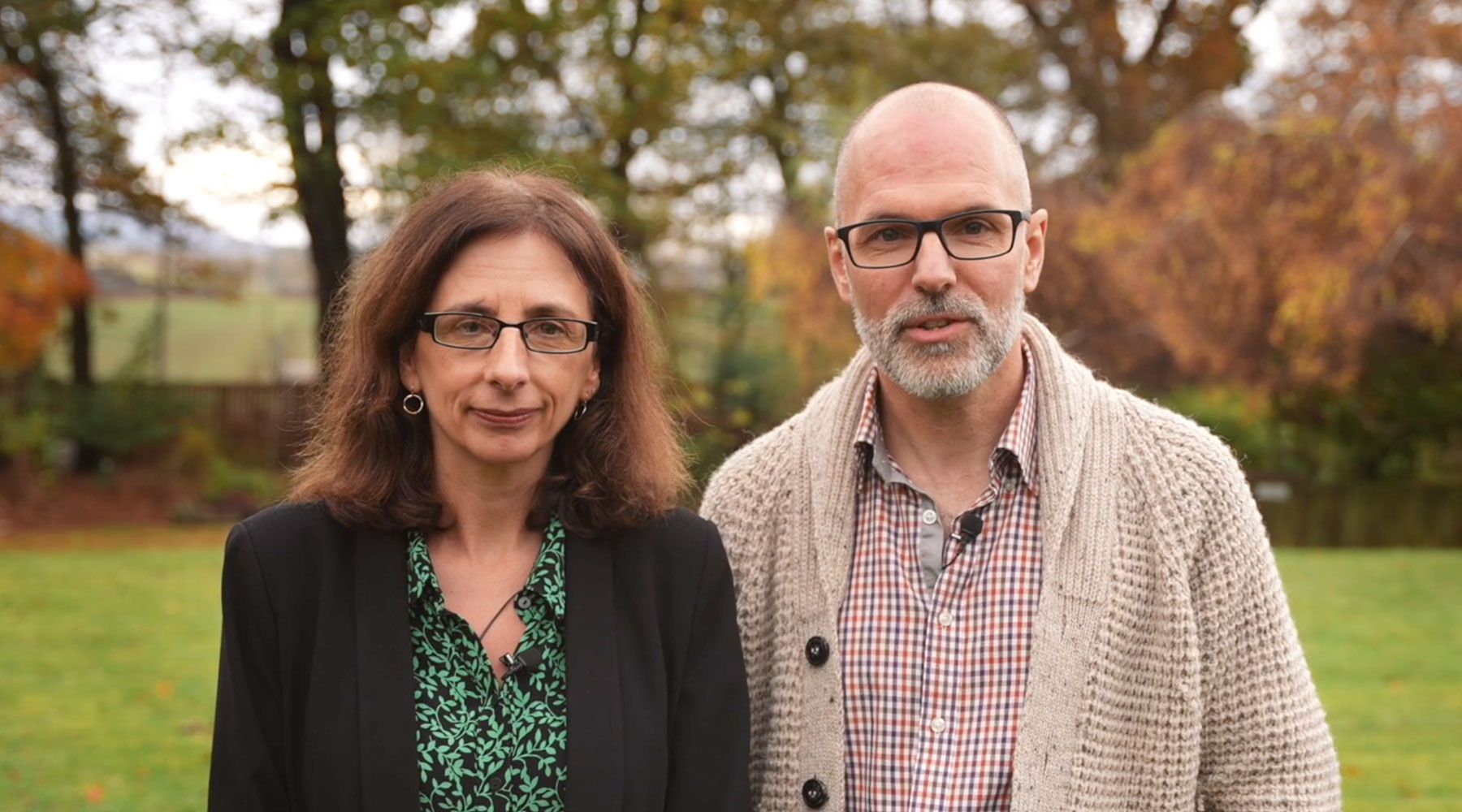Whether this is your first Christmas without your loved one, or they died some years ago, the festive period can be particularly difficult after bereavement. There will be an empty chair, and that grief is very real.
It's hard enough to cope with the emotional trauma, let alone everything else that this time of year brings. Often, the practical preparations and decisions feel very hard for people who are grieving. How will you manage the cooking, the decorations, the shopping, the socialising and the expectations of others?
Remember, it's important to take care of yourself. Following a death, it's common to feel a sense of apathy towards things that used to bring joy. This might mean you feel differently about Christmas traditions, or find them a trigger for grief. It's okay to do things differently – and to ask for help.
Here are some suggestions from my experience in supporting bereaved people at Christmas that may make things easier.
The lead up to Christmas
The anticipation of the first Christmas after a loved one has died can be very difficult. And feeling out of touch with rituals that you have always enjoyed can feel like a secondary loss as well. Grief can change the way life looks and feels. You are not being a 'grinch', you are coping with immense loss after a very difficult time. But I do find that most of the people I've supported say afterwards that the anticipation was actually far worse than the day itself.
Christmas cards
Sending Christmas cards, particularly that first Christmas, can be very difficult. It can be very painful to leave your loved one’s name off the card, and equally painful to receive cards addressed just to you. In my experience, there’s no expectation from others that you need to send out cards if you don’t want to.
If you’re worried about this, consider asking another member of the family or a close friend to spread the word about your wishes, for example that you won’t be sending cards this year, and would prefer not to receive them. Chances are people will be pleased to have a chance to support you in the way you prefer at such a difficult time.
Decorations
Sometimes it can be things which most represent the excitement and hope of Christmas that hit the hardest when someone we love has died. For some people, this is getting the Christmas decorations up. Particularly for your first Christmas without your loved one, you just might not be in the mood – and that’s okay.
You may feel differently in future, create new traditions, or find new ways to make the process of decorating for Christmas special.

Chris's family tree, with the lights 'thrown' on by the kids
Socialising
Parties and family gatherings may feel too much when you're just trying to get through each day, particularly if this is your first Christmas without your loved one.
Think through what expectations there are around your time and don't be afraid to opt out of anything that you feel will be especially upsetting or tiring for you. People will understand that you have limited energy. Looking ahead can help avoid last-minute disappointment.
One lady I supported said how she found it very helpful to know in advance who was going to be present at planned events and what would be happening, so she could visualise it and prepare herself better. Even if you think it's all okay, think about having plan Bs in case you just don't feel like it on the day.
The day itself
Remember, it's only you who can say what's going to feel most 'right' to you on the day. You might prefer to be alone, to connect with a select few, or to talk to as many people as possible. There is no right or wrong. It's also possible to appreciate those around you and still mourn all that you have lost.

You might prefer to keep the traditions as close to normal as you can, or to not celebrate at all – and that’s okay. People will understand and respect your wishes. It may help to prepare them in advance if you’re concerned about feeling pressure.
If you have people around you who normally rely on you making an effort, ask for help and share the work, or have a conversation with them about how you’re feeling so you can consider alternative options.
Just another day
It's absolutely fine to opt out of celebrations if you don't feel like it. You have permission to change your mind about plans, take breaks or leave early.
One gentleman I supported didn’t want any Christmases again without his wife. Despite having numerous invitations to spend the day – or just the meal – with others, he declined and decided to create a new routine for himself.
He wanted to spend the day alone, visiting the cemetery, playing favourite music, reminiscing on past Christmases with her. He saw Christmas Day as just another day in the calendar without her, and he wanted to spend it trying to find different things to do without her.
Keeping traditions going
Lots of people want to keep their Christmas traditions going as much as possible. But it’s worth thinking about the pressure that could put you under, and whether you could ask for more help.
I supported one lady in the run up to Christmas a few years ago who was facing the first Christmas without her mum. She’d never cooked a Christmas dinner before, but it became important to her to accomplish it this first Christmas after her mum had died – not only for herself but for her family.
After Christmas, when we met again, she reflected that the pressure had been awful! And as tasty as the meal was, it was never going to taste like her mum’s.
One lady I supported, whose husband had died, dreaded waking up in an empty house on Christmas morning, but didn’t want to be anywhere else. So, she arranged for her daughter to spend Christmas Eve night with her.
Whatever you decide to do, this may be a hard day, but remember that you have survived harder days, and you will get through this one too.
After Christmas
Many of us will have the big day itself as the focus for what we need to get through. But I find that people who are bereaved often find the first New Year without their loved one far harder than Christmas. Stepping into a new year without them, or feeling that you’re leaving them behind, can be really tough.
Acknowledging that this time of year can be hard, that you need to be kind to yourself, and that these feelings are to be expected and are totally normal can be a helpful part of prepping your first Christmas without someone.
If you need emotional support or practical information about any aspect of living with a terminal illness or coping with grief, we're here to help over the festive period as always. You can call us on 0800 090 2309 to speak to a trained member of the team, or to book to speak to one later, or use our online chat service. See opening times.
You can also read information online on grieving your way or order a booklet on when someone dies.
- This article has been revised and updated. It was originally published in December 2020.




